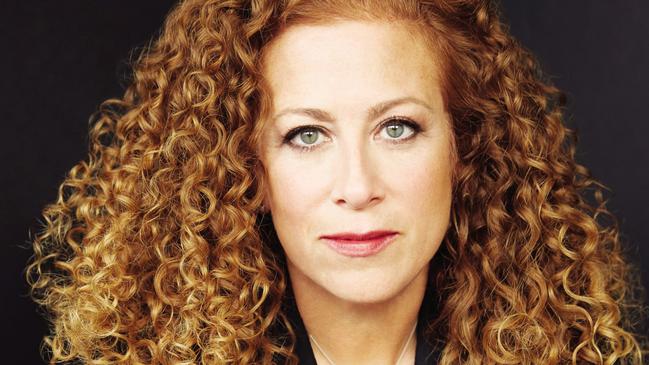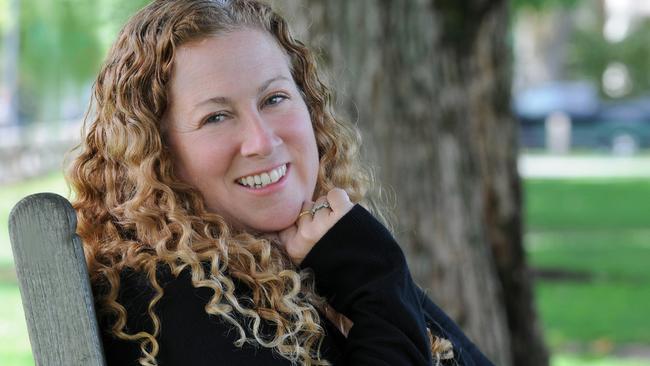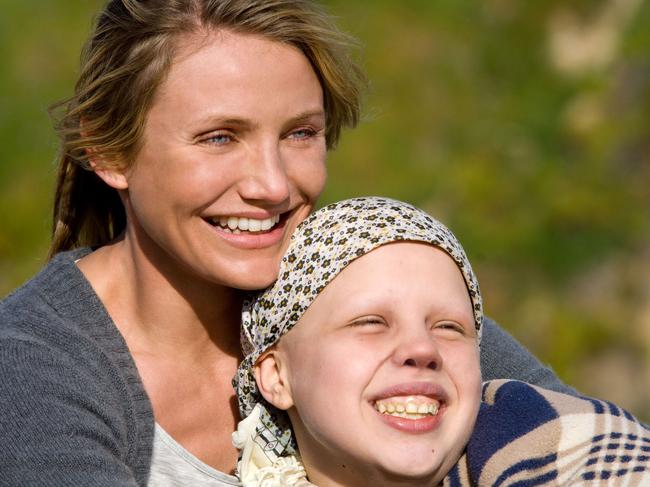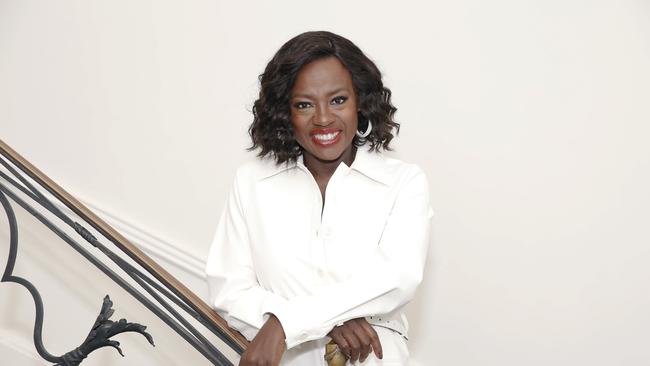Bestselling author Jodi Picoult tackles Covid pandemic in her new novel, Wish You Were Here
From abortion to the death penalty, no issue is off limits for Jodi Picoult. The bestselling author talks of her fearless research, politically correct “BS” and her new Covid novel.

Jodi Picoult has an intense dislike of being labelled as a chick-lit or women’s fiction author. “I hate being pigeonholed,’’ declares the creator of the novel turned Hollywood film, My Sister’s Keeper, and a string of other muscular bestsellers.
In a rare feat, Picoult’s last 12 books have debuted at number one on The New York Times bestseller lists – the same newspaper she accuses of publishing a disproportionate number of “slavishly fawning” reviews and profiles of white male literary stars at the expense of other authors. In a pointed moment in our Zoom interview, Picoult jokes that she sometimes finds this coverage so over-the-top, “I’m reading things that are like, ‘Who paid you to write this?’”
One of the world’s best-known commercial fiction writers, she may not be seen as a likely Pulitzer Prize contender, but she certainly knows how to connect with readers: her books have sold 40 million copies across 34 languages. Over her three-decade writing career, the Princeton graduate has demonstrated her extraordinary talent for tapping into the Zeitgeist, crafting storylines often torn from the headlines, and animating them through popular fiction tropes.
Her subjects have ranged from the intimate to the incendiary, from family sagas riven with conflict to school shootings, the death penalty and abortion. In fact, this 55-year-old mother of three may well be the planet’s most intrepid literary researcher. For Vanishing Acts, a 2005 novel about a missing persons investigator, she learned the formula for making crystal meth from inside a high-security jail. To research Change of Heart, published in 2008, she visited an Arizona prison’s death row and spoke to a condemned prisoner who “was convicted of murdering someone by shooting battery acid into his veins – yet who also called me Ma’am”. For 2018’s A Spark of Light, which opens with a gunman taking people hostage at a Mississippi abortion clinic, she observed terminations being performed. She also interviewed pro-lifers and dozens of women who had ended their pregnancies.
Picoult’s latest novel, Wish You Were Here, is, true to form, based on exhaustive research and could hardly be more topical. Even before it landed in bookshops, Netflix announced it had bought the screen rights to the book. Wish You Were Here is a pandemic story that depicts how the first wave of Covid-19 terrorises New York and catalyses profound change in the life of its protagonist, young Sotheby’s art expert Diana O’Toole.
For her 27th novel, Picoult conducted interviews with doctors and other medical professionals who worked on the frontline in New York during those grim, bewildering months of 2020. She tells Review she was so moved by their stories “I cried every time I interviewed someone. Every single time, because in America we got a lot of stories about refrigerator trucks outside where they were putting bodies. We got a lot of stories about everyone who was dying in the hospitals.
“We never really heard from the point of view of the medical professionals and how scared they were and … how exhausting it must have been to see 18 out of 20 patients die in one day and then step outside and hear your President (Trump) on the news say, just drink bleach and you will be okay. That disconnect was, I think, something we’re going to be paying for in the medical profession in terms of mental health, for many years.”

She also interviewed Covid patients who had been critically ill on ventilators and survived. Many were keen to talk: “When I put out a social media call for survivors who had been on vents, I received over 100 responses in an hour.” These patients’ experiences of learning to breathe and walk again, and the strangely vivid dream states they experienced, are filtered through the narrative and are used to furnish a dramatic plot twist.
Picoult’s novel is also set in the Galapagos Islands, where 29-year-old Diana finds herself stranded without her luggage, boyfriend or a hotel room, due to the rapidly unfolding pandemic. Thousands of kilometres away, Diana’s boyfriend, Finn, a surgical resident, is also trapped: it’s all hands on deck at the Manhattan hospital where he works as Covid overwhelms the city.
Finn’s harrowing experiences of trying – and failing – to save critically ill Covid patients are based on Picoult’s interviews with doctors.
Finn’s emails are awash with starkly compelling details about how Covid attacks the body, from the patient who bleeds through her lungs to those who are turned on to their stomachs, a practice called “proning”, to help them breathe. Yet Picoult is doubtful such detail will serve as a warning to the unvaccinated in her deeply polarised nation. She says: “At this point in America I do not know if there is anything that could convince an unvaccinated person to get vaccinated, because they do not care about the science. It has become a political issue for them.”
To date, New York State has lost almost 60,000 people to the pandemic.
For most of 2020, Picoult, an asthmatic, was holed up at her New Hampshire home “paralysed with fear. I couldn’t breathe well on a good day; I couldn’t even imagine what Covid would do to my lungs,” she writes in an author’ note.
She normally travels for half the year giving talks and promoting her books, but during the pandemic’s first 14 months, she could “count on one hand the number of times I’ve left my house”. Initially, the prolific author found that “I couldn’t concentrate on anything … I couldn’t even read.”
During our Zoom encounter, Picoult, in contrast, looks poised and relaxed, with her trademark cascade of red curls tamed into a long plait. The reason for her changed demeanour is simple – she is now fully vaccinated. She is also a highly-polished public speaker and her answers are delivered, fully formed, without hesitation or digression.
Several months into the pandemic, she tells me, she thought about writing a novel about Covid but “I couldn’t wrap my head around it”. Then she had a eureka moment.
She read a news story about a Japanese tourist who became stranded in Machu Picchu when the pandemic struck. He stayed on, embraced the local culture and was eventually granted a solo tour of Peru’s World Heritage site. This tale planted the seed for Wish You Were Here: “I just thought, ‘Wow! What would it be like to be in paradise when the rest of the world’s going to hell?’ ”
She switched her exotic setting to the Galapagos Islands, where Charles Darwin developed his theory of natural selection and evolution – this takes on symbolic significance in the narrative. As the stranded Diana adapts to her rustic life and connects with islanders and the extraordinary wildlife around her, she starts to question her closest relationships and tidily mapped-out life. “The beauty of setting this in the Galapagos is that it really does hearken back to the idea that when a species faces hardship they adapt, in a way, to survive,” Picoult says.
Did those months of being confined to her New Hampshire home cause the author to reappraise her own life? They did.

“There was a day,” she confirms, “when I looked at my email, and I realised that 80 per cent of it was about transit. I’ve spent so much of my life getting places. That really surprised me and it made me feel like I’d been on a treadmill, a hamster wheel and I hadn’t been able to get off it.”
She had been “devastated” when the pandemic forced the postponement of the 2020 off-Broadway debut of a musical she had worked on for eight years. Titled Between The Lines, it’s adapted from a young adult novel she co-wrote with her daughter, Samantha van Leer. “I was really depressed about that,” she confides.
However, as Covid continued to ravage America, her own – and other people’s – barometers for measuring success changed, she says. “Maybe it wasn’t so much about getting a degree, getting a promotion … getting that play on Broadway. It suddenly became very basic, the things that measured success were: Am I healthy? Do I have a home? Are my kids healthy?
“For me, the high point of 2020 turned out not to be my show – it was playing a game called foursquare in my driveway with my adult children, a ballgame that elementary schoolchildren play.” (Two of her children contracted Covid during the first week of the pandemic, though their symptoms were mild.)
Picoult has made an indelible mark on popular culture as a writer of “fearless fiction”, taking on hot-button issues and teasing them out from multiple perspectives. A Spark of Light, which centres on the abortion clinic hostage standoff, features characters who hold both pro-life and pro-choice positions. She says of this: “I don’t think it’s my job as an author to tell you what to think. It’s my job as an author to present all sides of the issue and then to ask you to re-evaluate your opinions.”
Many Spark of Light readers, she says, found it hard to tell whether she was pro-choice or pro-life, even though outside of her fiction “I am very firmly pro-choice”. Asked whether she feared attacks by religious zealots after that book was published, she responds: “I didn’t feel that way …. I had a lot of hate mail but I did not get a lot of in-person attacks.”
She reveals, though, that when she gave a talk at a Catholic university in Wisconsin “they insisted on having a Swat team at my event. I was escorted in by this burly man with sub-machine guns and I was going ‘Okay, maybe you’re overthinking this’ and, of course, nothing happened.”
I ask Picoult about the notorious Texas law which gives anyone the right to sue doctors who perform abortions, and makes no exception for rape or incest victims. “It is disastrous,” she says. “It is going to make abortion care and women’s health care difficult for mostly poor women and women of colour … What is particularly upsetting about the Texas law is that it has turned into vigilante justice, so that you accuse someone of helping someone else get an abortion and you could get $10,000 for it. And that feels to me more like a bad movie premise than it does justice.”
Nor does she expect the conservative-dominated US Supreme Court to strike down the law; in fact, she fears the court will overturn the historic 1973 Roe versus Wade decision that secured abortion rights for American women: “I do think they will overturn it. And at that point it will be a very sad day in America.”
In Small Great Things, published in 2016, she dealt, presciently, with another issue that divides her nation – racism. Interestingly, to research this book, she interviewed two former skinheads as well as many African-Americans. Ultimately, she created a black protagonist in neonatal nurse Ruth Jefferson. In the novel, Ruth is ordered not to go near the baby of a white supremacist couple who do not want black medical staff touching their child. After the baby goes into cardiac distress and dies, Ruth is put on trial.
The Washington Post called this book – which has been optioned for a film adaptation starring Viola Davis and Julia Roberts – “frank, uncomfortably introspective” and “the most important novel Jodi Picoult has ever written”. Its narrative premise may seem extreme, but it was inspired by a real incident in Flint, Michigan, in 2012 in which a white skinhead father demanded that African-American nurses not touch his child. The hospital acquiesced with the blatantly racist request and two black nurses later sued their employer for discrimination and settled out of court.
These days, white authors who create non-white protagonists are often accused of cultural appropriation. I ask Picoult what she thinks of the view white writers should not write about minority cultures, or that heterosexual writers should not write about gay or trans characters.
“It’s very hard to paint that with broad brushstrokes,” she responds. “No one will ever tell a writer to not write something ever, so that is total BS, to take that line, to begin with.

However, I do think it’s up to a writer to ask, ‘If you decide to tell a story about an under-represented group, and you are not part of that group, why do you think it’s your story to tell?
“ … I really wrestled with myself before I wrote about racism, it took me 25 years to write about racism”. She says her book is not aimed at black readers but at “nice white people who think they’re not racists, to realise what white privilege is really about. … To do that, though, I needed to create a situation that had Ruth in it.” She conducted her customary first-hand research and is “completely indebted to a handful of black women from all walks of life who spent hundreds of hours talking to me”. These women conducted a “sensitivity reading” of her manuscript. “If not for their expertise, I could not have created Ruth, nor should I have created Ruth,” she says.
She has already written a first draft of her next novel, Mad Honey and, intriguingly, it will be co-authored with transgender author Jenny Boylan. She can’t yet reveal anything about this work, but it’s telling she has teamed up with a trans writer to – presumably – explore one of the most emotive issues of our times.
In a departure from her busy novel writing career, Picoult has segued into musicals in recent years. Between The Lines will be staged next year and she was the co-librettist for Breathe, which explores the effects of Covid – including death and grief – on different couples. It was filmed during the pandemic under social distancing conditions.
She finds working on musicals “such a cool, fun job. It is the antithesis of writing a novel because it’s all collaborative. I just love the energy of doing it.” She is also co-librettist on a musical adaptation of The Book Thief by Australia’s Markus Zusak. It’s due to open in 2022 in Manchester and she says “we are super excited about that”. She has tweeted that the musical will tell Zusak’s story – which deals with war, prejudice and the power of reading – “in a new, raw, beautiful way”.
In 2010 Picoult and another commercial fiction author, Jennifer Weiner, helped ignite a fierce debate when they accused The New York Times of favouring white literary male writers. They spoke out after Jonathan Franzen’s novel, Freedom, received two rave reviews in one week from the grey lady – a privilege rarely accorded to female writers.
This controversy contributed to significant media reform: at many leading publications today, women literary writers receive significantly more coverage than they did a decade ago. However, Picoult feels that women writers – including women who write popular fiction – still aren’t being given a fair go. The gender imbalance she called out 11 years ago has “changed a tiny bit”, she says, adding that “it’s not just The Times, it’s a lot of different outlets. White men, white literary authors are still the gold standard for The New York Times, and not only do they get slavishly fawning reviews of their work, they also usually get ridiculous profiles about their work.”
She laughs and remarks ruefully: “At this point I am so attuned to gender discrimination in publishing, I barely even notice it anymore because I just expect it.”
However, the novelist doesn’t exactly sit around feeling sorry for herself. She says that after Between The Lines was postponed in 2020, “I could have spent that entire year sobbing into my pillow or eating chocolate”. Instead, she wrote Wish You Were Here and the first draft of Mad Honey. “I love writing, I love creating stories, I don’t see that stopping any time soon,” she says.
Covid continues to stalk America, but the best-selling author has shed her anxiety about going out or travelling. “I feel very protected with the vaccine,” she says. “I do firmly believe that I could get Covid, but I don’t think I’m going to die any more. I am very safe when I go out and I mask up, wash my hands and use my sanitiser, but I do go out. Because, honestly, this is the world now and we have to learn to live in it.”
Wish You Were Here by Jodi Picoult, Allen & Unwin, $32.99 is out now


To join the conversation, please log in. Don't have an account? Register
Join the conversation, you are commenting as Logout